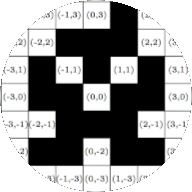Preface Preface
Die ganzen Zahlen hat der liebe Gott gemacht, alles andere ist Menschenwerk (God made the integers, all else is the work of humans.), Leopold Kronecker, 1886 [8]
Following Kronecker’s premise, we assume knowledge of the integers along with the operations addition (plus), subtraction (minus), and multiplication (times).
Humans are curious and not content with this. They start asking further questions about the integers. With these questions the work of humans begins and thus mathematics begins. One natural question to ask is: “How many integers are there?” We find that we cannot name a greatest integer, since anytime we have a candidate for greatest integer, we can add one to it and thus obtain a larger integer. This leads to the concept of infinity. The positive integers also exhibit the property that we can always find a greater positive integer. A next question is: “Are there infinitely many positive integers?” The work of humans continues in the form of a creative process. A notion for collections of numbers (and other objects) having the same (infinite) “size” is introduced. With that notion there are as many positive integers as there are integers. We will give the details on this at the end of Part II.

